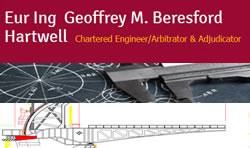We have all experienced levels of anger and levels of fear in mediation, and we have witnessed our clients in fear and in anger. What effects do these emotions have on us, the way we receive and communicate information, and on the way we make decisions?
Neuroscientists tell us that most of our behaviors and decisions are driven by evolution and by habit. Cognitive control originating in the pre-frontal cortex let's us direct our behaviors and make decisions to achieve longer term goals in unique situations. However, the metabolic cost is so high, we reserve this cognitive, conscious control to truly unusual situations where habit will not work so well. Without getting too technical, the right pre-frontal cortex has some ability to suppress anger and fear, but not a lot. It is quickly overwhelmed if other parts of the brain are supercharged with activity (e.g., high emotions). The ventromedial pre-frontal cortex is the seat of our value signals and is activated by the things we like. This part of the brain turns down when facing losses and turns up when facing gains. Not surprisingly, people demonstrate a high variability of impulse control around gains and losses - some are disciplined, many are not.
How do fear and anger fit into this picture? Anger turns down the ventromedial pre-frontal cortex so that we tend to take more risks. The evolutionary biologists hypothesize that this gives us a greater perception of individual control that, in turn, gives us sufficiently more confidence to work, fight, or run our way out of difficult situations. What is even more amazing, is that we don't have to feel angry for this effect to take place. Residual effects of anger can last for hours. If your client had an angry moment with a spouse or child in the morning before the mediation, his or her ventromedial pre-frontal cortex will still be turned down at the mediation. Your client could look as cool as a cucumber, and still not have clear decision-making processing working in the brain. A great example of this is how President Obama handled negotiations with Chrysler executives one morning. Earlier, he had become angry over reports of the Air Force One flyover of Manhattan for photo-ops. He had cooled down by his late morning meeting with the Chrysler people. However, they did not walk away with the deal they wanted. It's very likely that his earlier anger made his risk assessment of a Chrysler bankruptcy different than what he might have assessed with a calmer morning.
Another effect of anger is to increase confirmation bias. This well-known distortion in decision-making says that we will tend to seek information that confirms earlier beliefs and ignore or discount information that is inconsistent with earlier beliefs. Anger intensifies the confirmation bias so that we cannot hear information about weaknesses in our case.
Fear, on the other hand, works much differently. Fear tends to make us overestimate risks due to a greater perception of situational control. In other words, in a fear condition, our brains tend to view the world as controlling events, not ourselves as individuals. With a lower sense of control, we tend to look at risky decisions conservatively.
Since the pre-frontal cortex is a metabolic hog, we lose self-control over fear and anger over time. Our loss of control is caused by cognitive energy depletion in the brain, and eating carbs will not boost energy right away. We have all seen tempers flare, positions become more entrenched, and cooperation flag later in the mediation. This is simply the effect of tired, energy-depleted brains.
One of the many reasons mediation is so useful is that the mediator becomes the pre-frontal cortex in the room. Mediators provide the cognitive functioning that is lost in the emotions of anger and fear and provide a functioning brain when everyone else's brains are in in low energy states. Anger and fear are normal experiences in conflict and in litigated disputes. Understand how these emotions affect perceptions and decisionmaking and you will have a greater insight into the negotiation.
Douglas Noll, has mediated over 400 difficult and complex conflicts including employment disputes (gender discrimination, racial discrimination, wrongful termination) construction defect cases, complex commercial and industrial construction disputes, CERCLA claims, partnership dissolutions, water rights disputes, shareholder disputes, intellectual property litigation, constitutional law cases, land use disputes, financial and commercial disputes, crop losses, estates and trusts litigation, and insurance disputes.
©Copyright - All Rights Reserved
DO NOT REPRODUCE WITHOUT WRITTEN PERMISSION BY AUTHOR.











